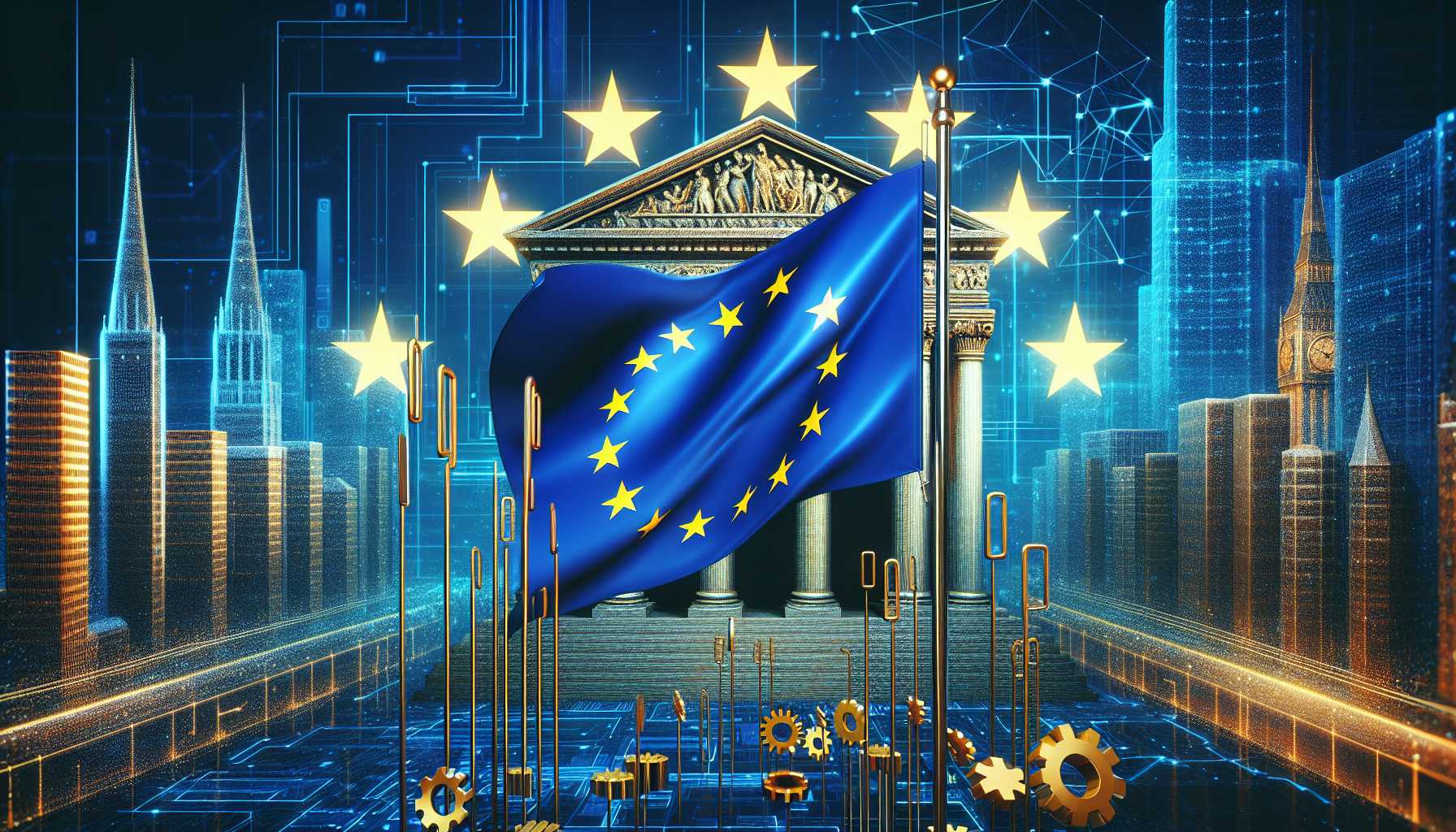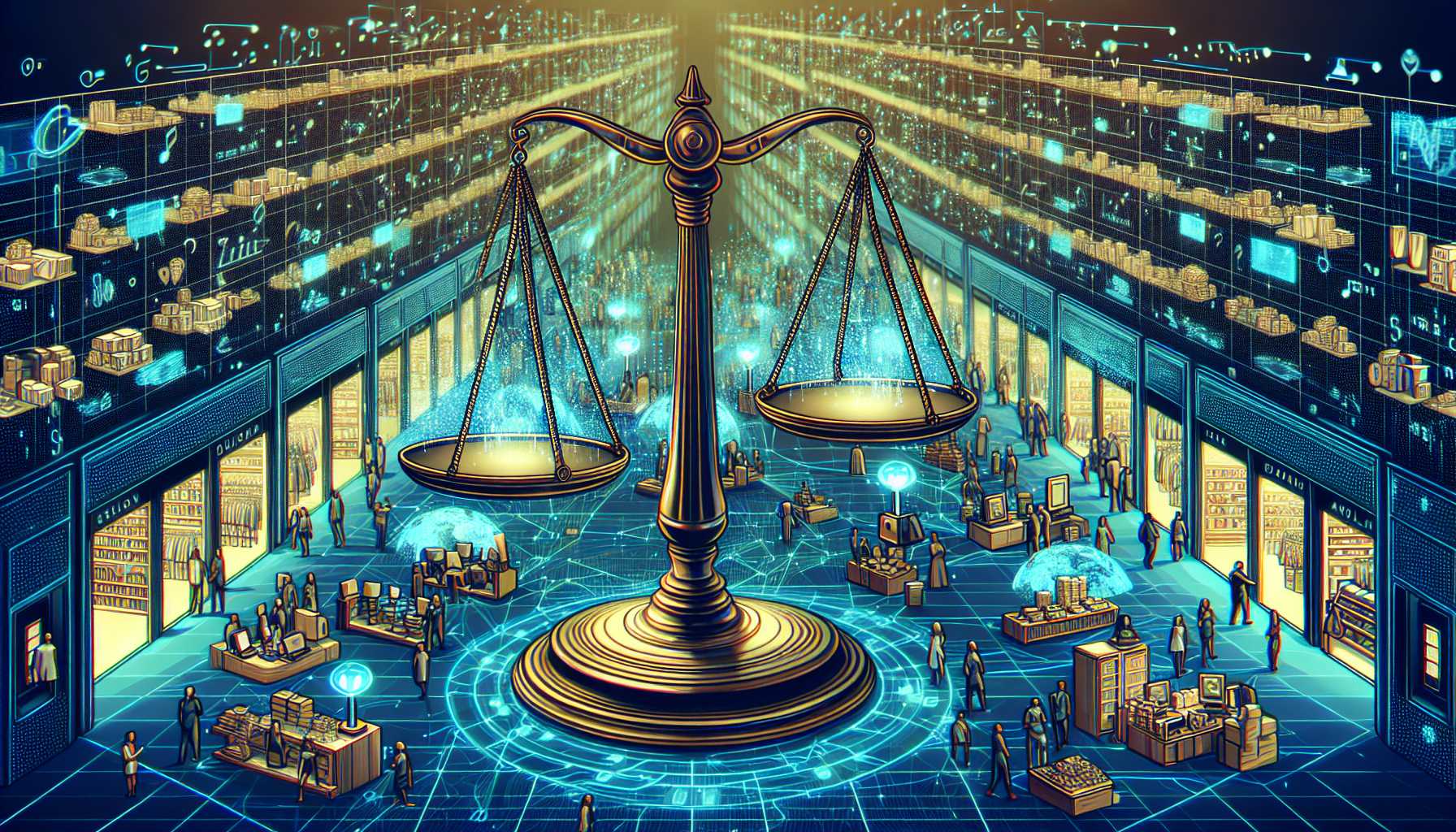The Digital Markets Act: A Tectonic Shift in the EU’s Digital Landscape
The digital realm is about to undergo a tectonic shift, and if you’re anything like me, you probably didn’t see this coming while sipping your third espresso shot of the morning. The Digital Markets Act (DMA) is here, and it’s set to redefine the playing fields of the EU’s digital marketplace by midnight Brussels time.
Picture six Goliaths – Alphabet, Amazon, Apple, ByteDance, Meta, and Microsoft – getting ready to play by an entirely new set of rules that would make even the most seasoned Silicon Valley moguls sweat. The DMA is like the referee that has just blown the whistle on tech giants, signaling that the days of lax oversight are over. Overshadowing the game are mandates including data portability, interoperability, and the prohibition of certain self-preferencing practices. In simpler terms, the act seeks to dismantle the iron grip these platforms have on the digital markets—and let’s be honest, it’s about time.
The enforcement aims to inject fairness into the market – envision Apple getting the side-eye for banning third-party app stores, or imagine Amazon receiving a slap on the wrist for playing favorites with its products over its competitors. As for the nitty-gritty details, the DMA has a few tricks up its sleeve including prohibitive fines that could tickle even the fattest wallets, with penalties soaring to billions of dollars for repeated offenses. But the real kicker lies in how these changes might ripple out to affect the broader tech landscape.
What’s New on The Block: The DMA’s Immediate Impact
In the wake of DMA’s looming compliance deadline, we’ve witnessed fascinating corporate ballet moves. Apple, for instance, has been showing off some new core tech fees and loosening its grip on browser-based restrictions in the EU. Google is tweaking its search displays and doing an about-face on cross-service tracking, while Meta is mumbling something about messaging interoperability between WhatsApp and Messenger. Integration timelines vary from months to years depending on the complexity, with basic functionalities getting priority. Yet, it’s clear that some Big Tech leaders hope to skirt around the DMA’s stricter regulations, with finesse moves like Meta’s ‘pay or be tracked’ model exemplifying the art of “malicious compliance”.
Now, all this backstage hustle is gripping, but we’re all really here to see who takes the lead in this compliance dance-off.
The Fine Line Between Compliance and Confrontation
As we hurtle closer to the enforcement of the DMA, one can’t help but sense a silent war brewing. This is not just about ticking compliance boxes; it’s about how avidly these tech behemoths will cling to their lucrative status quo. Apple’s zest to levy charges even on sidestepping developers and Meta’s audacious ‘consent or cash’ stratagem are prime examples of this stubborn defiance. But here’s where it gets juicy – the DMA doesn’t explicitly dictate the ‘how much’ in fees, just that they be fair and reasonable. Expect some Shakespearean drama as the industry juggles fair play with profit margins. The impending workshops where Big Tech must confront their critics face-to-face – now that’s a scene worth watching. It’s a digital ‘court’ where narratives will clash, and only the most persuasive will set the tone for Europe’s digital future. With both sides armored with an arsenal of legal counsel, the offense and defense promise a spectacle of wit and strategy.
AI’s Ascension: A Golden Age for Generative Technology?
On the topic of groundbreaking revolutions, Jamie Dimon of JPMorgan Chase acknowledges AI’s escalating prominence in industries far and wide. Contrasting it with the arguably overhyped internet bubble, he confidently places his bets on AI’s tangible impact on future job landscapes and its vast potential, even in the medical realm. One company to keep an eye on is Palantir Technologies, a two-decade champion of AI-based analytics, now gearing up to release its magnum opus, the Artificial Intelligence Platform. With predicted rapid adoption, it poses an enticing prospect for generative AI enthusiasts and is a stark reminder that tech innovators who tap into AI’s burgeoning powers might soon lead the next era of technological advancement.
Reddit Turns to AI to Clean Up the (Digital) Streets
In a slightly quieter corner of cyberspace, Reddit has enlisted AI to become its new sheriff in town. By employing a Large Language Model trained to detect harassment, Reddit aims to buffer its moderators and clean up its digital alleyways. Though the concept sparkles with potential, the efficacy of such AI-powered vigilantes remains to be truly tested as they navigate the gray areas of online conduct. The presence of this digital deity, whether welcome or worrisome, indicates a broader trend of AI policing the virtual realm.
In conclusion, the theaters of technology are buzzing with transformative narratives. From regulatory shake-ups courtesy of the DMA to the enigmatic rise of AI, it’s clear that our digital existence is teetering on the edge of metamorphosis. And as we navigate these shifts, let’s raise a glass (or a VR headset) to the future that unfolds before us—a future ripe with innovation, debate, and perhaps, just a dash of evasion.





